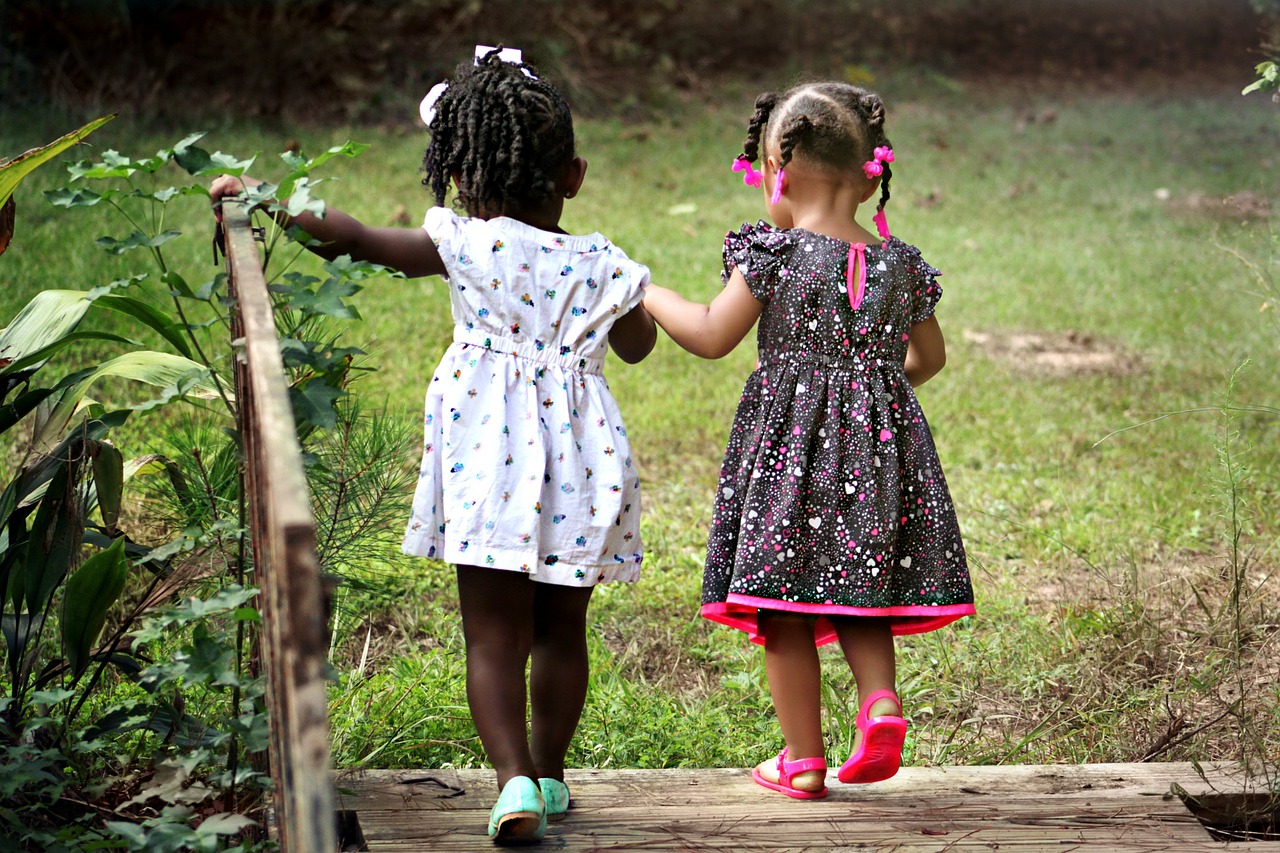If you’ve got young children, then you know that an occasional outburst is par for the course as they learn how to interact with their siblings and other kids. Developmentally speaking, children’s immature impulse control often interferes with their capacity for empathy, which can lead to hitting, biting and bullying. Unfortunately, these infrequent emotional outbursts may become routine if they aren’t taught boundaries and discipline early in their development. As a parent, however, you can take certain steps to teach your kids how to be gentle, respectful, and well-behaved.
Open a Dialogue
Most children respond to a firm but gentle approach. Start by explaining the importance of being kind and compassionate with their siblings, friends, and peers. Teach them why it´s good to be generous. Naturally, you’ll want to adjust how you present this information to meet the learning capacity of your children in terms of their age.
In any case, try to tell them that every person has value, including people they may not like at first. Add that giving other people a chance might open up new possibilities for friendships. Explain that others are hurting when they shout at them or push them. If you’ve got even younger children or pets at home, tell your older children how important it is to protect them. You may not assume that talking with your kids will work, but you’d be surprised by how much of a positive difference an open dialogue can make.
Model Good Behavior
Model gentle behavior, and your kids will follow suit. If you have a dog, for example, demonstrate how to hold and pet it so that your children see the correct way to treat animals. The same holds true for younger siblings. Teach your older children how to hold and gently stroke their younger brothers and sisters. If they have no siblings or pets, then demonstrate how to touch gently by stroking your child’s face and explaining the process. If they learn how good something feels for them, they are more likely to carry out this same behavior with their peers.
Practice Good Manners
Basic manners go a long way toward helping children interact not only with each other but also with other adults, such as teachers. Explain that calling people names is not appropriate and that insulting people can have long-lasting effects. While you’re teaching your kids to be polite and gentle, teach them the value of an apology – make sure they know why it’s needed after they’ve hurt someone, even by accident. “Please,” “thank you” and “I’m sorry” should be explained in detail – not just how to say each phrase but also why they need to be said in the first place. If your children understand the need to apologize or be polite, eventually they’ll start saying these things on their own.
Use the Right Media to Your Advantage
Today’s technology makes it easier to teach kids how to behave, but you can start with the classics. Books and kid-oriented television shows offer many lessons on compassion, treating others with respect, sharing, gentleness, and other positive attributes. Consider those media to encourage your child´s emotional development. For example, you can watch TV with your kids, noting how the characters interact with one another, and ask your children what they’ve learned from each episode.
You can also use your smartphone advantageously by downloading apps that encourage empathy and compassion in children. There are also numerous computer games that produce that same effect. Don´t be afraid to use advanced technology that can enhance your endevour to turn your mischievous child into a caring and emphatic adult.
Set Appropriate Expectations
Children need guidelines, and they need to know how important it is to you that they behave appropriately. In a loving but firm voice, explain to your children that being polite and showing kindness matters. Set age-appropriate expectations. After all, a very young toddler isn’t likely to understand that he needs to stop pulling his sister’s hair all the time. Work in stages as your children grow, and don’t be afraid to enforce appropriate consequences for misbehavior, such as quiet time or revoking certain privileges. Your kids should not be afraid of you, but they should know that there will be consequences if they consistently break the rules.
Observe and Reinforce
Over time, your kids will learn how to behave, but they need practice to get there. Watch your children when they’re interacting with other kids or pets, and intervene when necessary. Follow through with the consequences you’ve already established. Be consistent and methodical in your approach. When they behave well, encourage them by recognizing their effort verbally or even giving them a reward if they behave very nicely. Children want to please their parents, so give them a reason to make you proud. Although slight punishments can sometimes help, positive parenting will get you much farther.
Conclusion
Teaching your children to be gentle may feel like an uphill battle, especially if you have spirited children who are naturally inclined to buck the rules. However, it’s important to teach gentleness and kindness early so that your kids grow up to become considerate, empathetic and compassionate adults. Solid, consistent effort will help your children grow, so take the time to both encourage and model good behavior. Eventually, it will pay off.
Pin it for later:
 Author BIO: Patricia Dimick is a Denver-based freelance writer and a stay-at-home mom. This passionate coffee drinker loves to write about parenting topics and anything related to healthy lifestyle choices. You can reach her @patricia_dimick.
Author BIO: Patricia Dimick is a Denver-based freelance writer and a stay-at-home mom. This passionate coffee drinker loves to write about parenting topics and anything related to healthy lifestyle choices. You can reach her @patricia_dimick.






